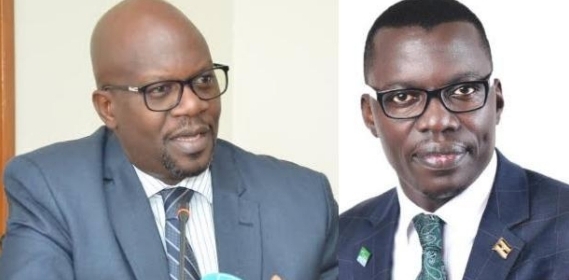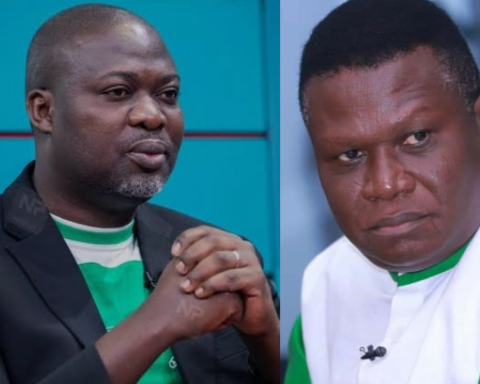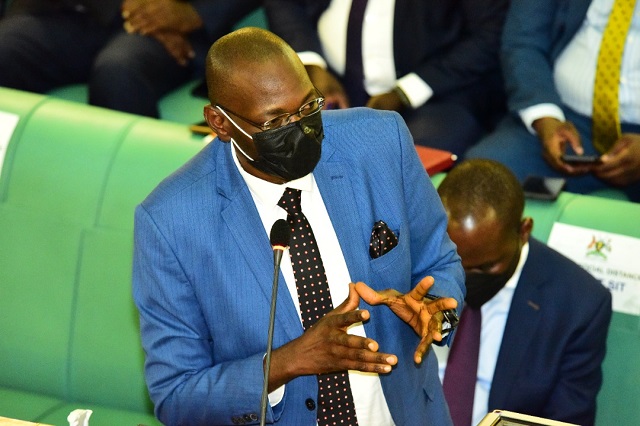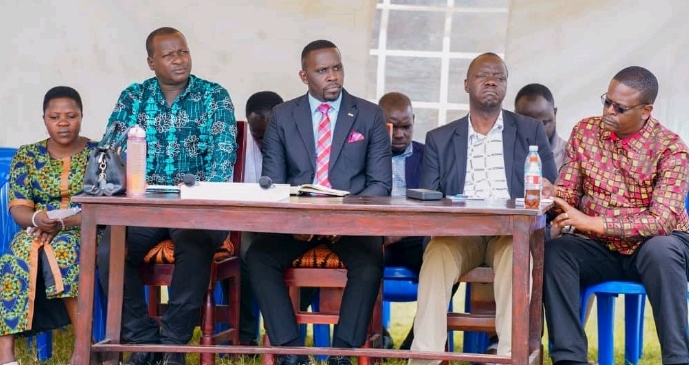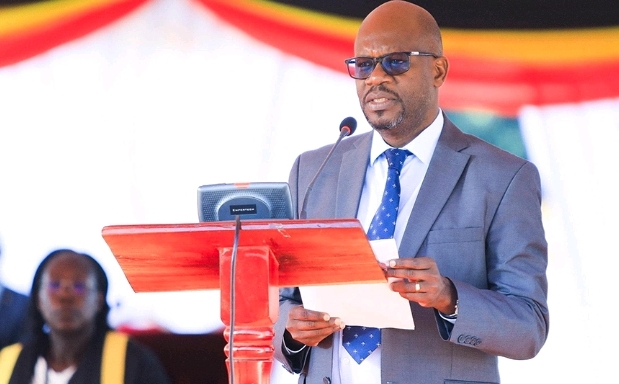The Democratic Party (DP) is facing renewed internal strife after the party’s Deputy Legal Advisor, Richard K. Lumu, formally petitioned the Independent Electoral Commission (IEC), accusing Secretary General Gerald Siranda Blacks of unlawfully modifying the party’s constitution without proper approval from DP’s top decision-making bodies.
In his letter dated May 9, 2025, and acknowledged by the IEC on May 12, Lumu claims that the Secretary General submitted a doctored version of constitutional amendments for official gazettement amendments he insists were never passed by delegates during the 2020 National Delegates Conference (NDC) held in Gulu.
Lumu, who originally introduced the amendments, contends that the gazetted version distorts his proposals and bypasses established internal procedures.
“To my shock, and without any input or endorsement from the National Executive Committee, Mr. Gerald Siranda Blacks submitted an altered version of what he claims are ‘approved amendments’ to the authorities,” Lumu noted in his petition. “These changes were not discussed, voted on, or ratified by the delegates in Gulu.”
The controversial amendments appeared in The Uganda Gazette, Vol. CXVIII No. 33, on April 25, 2025, under General Notice No. 1143 of 2025.
Lumu argues that their publication grants an illegal veneer of legitimacy to what he describes as a deliberate attempt to dismantle the party’s democratic frameworks, warning that the move represents an internal coup against accountability and transparency.
The petition adds to growing signs of internal division within DP as the party prepares for the 2026 general elections. Once heralded as Uganda’s oldest political party, DP now faces internal conflict, accusations of autocratic leadership, and weakening public confidence.
According to Lumu’s letter, the disputed amendments centralize financial authority in the Secretary General’s office, reintroduce previously rejected reforms, and eliminate formal representation for youth and women within party structures. He argues these changes undermine inclusivity and concentrate power in the hands of a few.
Lumu also challenges the Secretary General’s issuance of new electoral guidelines for internal party elections, including nomination fees and other requirements not endorsed by the National Executive Committee (NEC). These measures, he says, hinder democratic participation and create barriers for would-be candidates.
One particularly contentious provision allegedly restricts members’ access to courts of law, compelling them to use internal dispute mechanisms—mechanisms Lumu claims are under the control of the same leadership accused of manipulating party structures.
He warns that such a clause infringes on members’ constitutional rights to a fair hearing and legal redress.
“These amendments are not the product of transparent, participatory processes,” Lumu stated. “They reflect unilateral decisions aimed at consolidating control rather than promoting unity or accountability.”
In his petition, Lumu urges the Electoral Commission to investigate the gazettement process, suspend recognition of the amendments pending verification, and warn the Secretary General against issuing directives without proper institutional endorsement.
He appeals to the Commission to safeguard internal democracy as mandated by Uganda’s Constitution and the Political Parties and Organisations Act.
Political observers say the dispute threatens to undermine DP’s organizational stability and electoral credibility, especially as the opposition landscape intensifies ahead of 2026.
With senior leaders openly clashing and the party’s internal procedures under question, DP’s leadership is facing a serious test of legitimacy, cohesion, and relevance in the national political arena.

